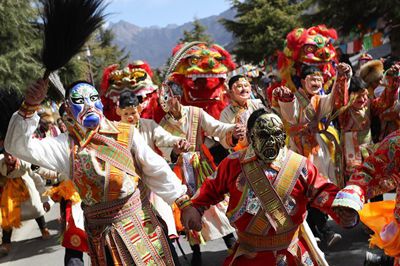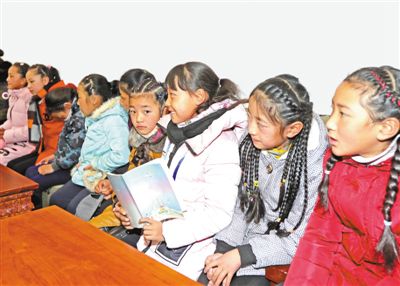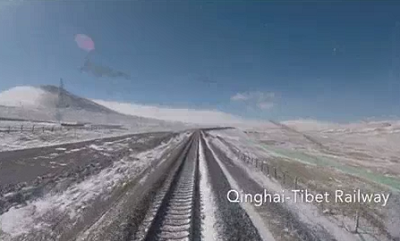|
11. Can China practice the policy of "one country, two systems" in Tibet? Or determine the status of Tibet through "plebiscite"?
A: The "one country, two systems" principle is a guideline designed by the central government for resolving the Hong Kong, Macao and Taiwan issues, in order to bring about reunification of the motherland. The question of Tibet is completely different from that of Hong Kong, Macao and Taiwan. Tibet was peacefully liberated as early as 1951. The region abolished feudal serfdom through Democratic Reform in the late 1950s and early 1960s, when over a million serfs were emancipated. In 1965 Tibet Autonomous Region was established. It enjoys regional ethnic autonomy stipulated in China's Constitution and laws, and the people of various ethnic groups in Tibet have the fully guaranteed right to participate in national and local affairs. After decades of socialist construction, there has been created in Tibet a situation of economic development, social progress, ethnic unity and people living in peace and contentment.
The so-called "high-degree autonomy" put for-ward by the Dalai Lama is a trick to deceive those who do not know the facts about China. since Tibet is one of the five autonomous regions in China, the "high-degree autonomy" in two steps. The first step is to restore the Dalai's rule over Tibet and restore the system of old Tibet; and the second, to realize "Tibet independence."
Tibet is an inalienable part of the Chinese territory, an autonomous region under the jurisdiction of the central government, so no foundation for voting on Tibet's future exists. So-called "plebiscite" is yet another political attempt on the part of the Dalai Clique after the failure of a series of "Tibet independence" activities. They aim to seek support from the international community in the name of "democracy," thereby internationalizing the Tibet issue. In essence, they insist on "Tibet independence," advocating and instigating separatism. |
- Home
- News |Tibet |Exclusive |China |World |Other Tibetan-Inhabited Area |Tibet through the Eyes of Foreigners |Related News
- Documents |White Papers |Others
- Photo |Politics |Economy & Society |Culture & Religion |Human & Nature |Beautiful Tibet |Other Tibetan-Inhabited Area |Exchanges |Related
- Video |News |Documentary |Micro-Video |Entertainment
- Art
- Tourism
- In Focus
- About Tibet






